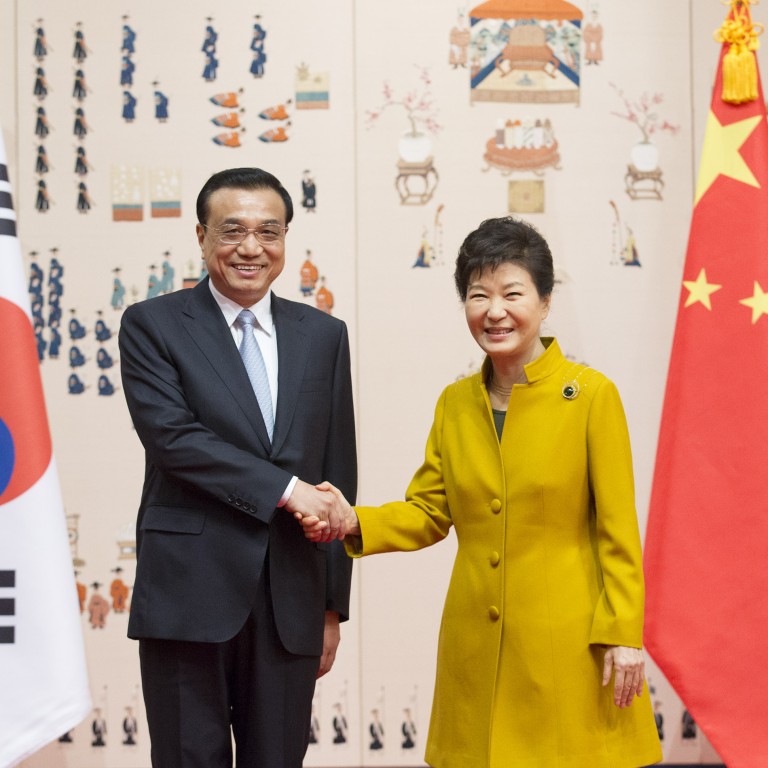
Robotics, food imports, 'green' factories: China and South Korea sign series of deals ahead of trilateral meeting with Japan
Agreements covering economics, trade ahead of trilateral summit
Chinese and South Korea leaders reached a series of economic and trade agreements yesterday in Seoul, a move showing both sides' determination to speed up their bilateral free-trade agreement, which could be in place by the end of the year.
Premier Li Keqiang and South Korean President Park Geun-hye signed 13 items of memorandum of understanding and one cooperation agreement during their one-on-one meeting at the presidential Blue House.
Their agreements came ahead of the trilateral summit between Li, Park and Japanese Prime Minister Shinzo Abe scheduled to take place today. The three sides are hoping to repair relations strained by wartime actions and territorial disputes in the region.
"My goal at this time is to enhance bilateral cooperation in every sector, pushing up the Sino-South Korea relationship and getting more achievements," Li told Park, adding Beijing appreciated her efforts to maintain stability of the Northeast Asia region by holding the three-way meeting. Park said that she hoped today's summit would help to lead to long-term stability of the Korean Peninsular and the entire region.
The free-trade agreement had yet to gain approval from legislatures on both sides, according to Park's administration.
They also agreed to work towards expanding South Korean food exports to China and strengthening industrial cooperation in areas such as robotics, manufacturing, "green" factories among others. Chinese Foreign Minister Wang Yi , one of the members of Chinese delegation in Seoul, said there had not been any confirmation of a one-on-one meeting between Li and Abe.
However, Wang said he would probably meet with his Japanese counterpart.
Earlier this week, Japanese government officials said Abe would express concerns over China's rapid island-building activities in the disputed sea when he holds his first talks with Li today, Kyodo reported.
"I wonder what Japan has to do with the South China Sea," Wang said in Seoul yesterday.
Victor Teo, assistant professor of Japanese studies at the University of Hong Kong, said Abe's passage of national security bills at home remained the key obstacle affecting Tokyo's bilateral ties with Beijing and Seoul, who were victims of Japanese imperialism during the second world war.
But he added such trilateral summits were valuable as they provided opportunities for the leaders to "speak privately and understand the constraints each leader faces at home."
